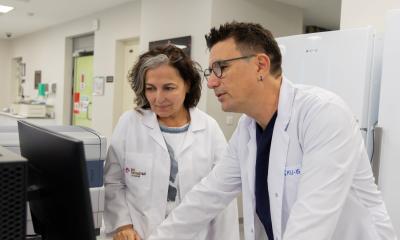C. difficile test guidelines are being ignored
Inadequate testing may mean one of the most common healthcare-acquired infections could go undiagnosed.

New data presented at the international ID Week 2012 conference in the U.S. showed that over three quarters (78%) of healthcare professionals surveyed in Europe believed that they may not be following guidelines for the testing of Clostridium difficile infection (CDI). This is despite survey respondents believing that CDI is increasing with a large number of cases going undiagnosed.
CDI is one of the most common healthcare-acquired infections in Europe and the leading cause of antibiotic- associated diarrhoea in adults. CDI has become an increasing problem in hospitals. It is estimated that as many as one in 50 people with CDI will die within three months as a result of the infection. Current European Society of Clinical Microbiology and Infectious Diseases (ESCMID) guidelines recommend a two-step approach for the diagnosis of CDI involving two different tests detecting both the presence of C. difficile bacteria and the toxins produced by the bacterium. Just 22% of surveyed healthcare professionals understand that their laboratories regularly used a two-test diagnostic algorithm for CDI that detects both the presence of C. difficile and the presence of toxins.
“It’s concerning to see that there appears to be confusion about which CDI tests are actually being used. The findings suggest that the recommended CDI diagnostic tests may not be being conducted systematically across Europe. This could lead to under-diagnosis or misdiagnosis, ultimately meaning that patients may not receive optimum care”, said Professor Mark Wilcox, Professor of Medical Microbiology, Leeds Teaching Hospitals & University of Leeds. “The net effect of this non-standardised approach to testing could also mean that the true incidence of CDI across Europe is underestimated.”
The survey was conducted by GFK and commissioned by Astellas Pharma Europe Ltd. A total of 868 questionnaires were completed by healthcare professionals from France, Germany, Italy, Spain and the UK that included hospital physicians, infectious disease specialists, surgeons, primary care physicians and microbiologists. The survey found important discrepancies between the tests requested by physicians and those actually performed in the laboratories. While 64% of physicians requested a stool culture, only 42% of microbiologists reported using this method in the laboratory. Conversely, 44% of physicians requested an enzyme immunoassays (EIA) toxin A+B+ test, while 75% of microbiologists used these tests in the laboratory. This discrepancy may be due to the fact that stool cultures can be labour intensive and slow when EIA tests are simple and quick to perform. However, EIA tests are less sensitive and may lead to cases being undiagnosed if used alone.
“These findings reveal important variations in knowledge regarding CDI diagnosis among healthcare professionals and suggest that a significant educational effort is required to address this”, said Wilcox. “Physicians need to familiarise themselves with locally available tests and establish a dialogue with laboratories to optimise their diagnostic approach.” The results of this pan-European survey highlight the need to standardise testing in line with recommendations to minimise the underdiagnosis of this distressing and sometimes life-threatening infection.
05.11.2012





